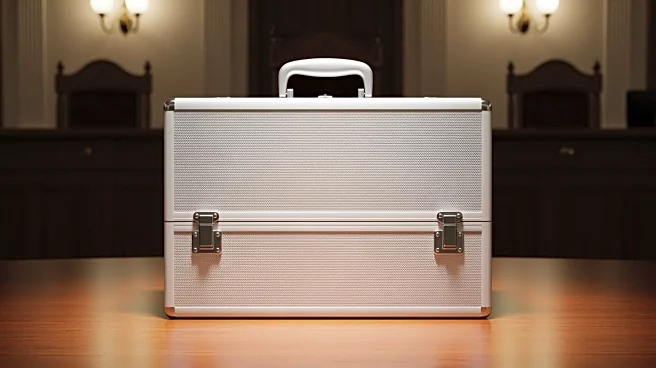What's Happening?
Former FBI Director James Comey is attempting to prevent the use of documents seized by federal authorities five years ago in his upcoming trial. Comey is charged with lying to Congress and obstruction of justice, related to his testimony about the FBI's
investigation into Hillary Clinton. He claims the case is retaliatory, driven by President Trump's influence. Comey's legal team argues that the seized documents, obtained during a previous investigation that was closed without charges, should not be admissible. The trial is set to begin in January 2026, and Comey is seeking to have the charges dismissed, citing vindictive prosecution and issues with the appointment of the interim U.S. attorney handling the case.
Why It's Important?
The case against Comey is significant due to its political implications and the potential impact on the independence of the Justice Department. If Comey's claims of retaliatory prosecution are substantiated, it could undermine public confidence in the impartiality of federal prosecutions. The case also raises questions about the use of previously seized documents in criminal trials and the protection of attorney-client privilege. The outcome could set legal precedents regarding the admissibility of evidence and the influence of political figures on prosecutorial decisions.
What's Next?
The court will need to decide on the admissibility of the seized documents and whether Comey's claims of vindictive prosecution have merit. The trial's outcome could influence future cases involving high-profile political figures and the use of evidence obtained in previous investigations. The case may also prompt discussions about the need for safeguards to protect the independence of the Justice Department and prevent political interference in prosecutions.















